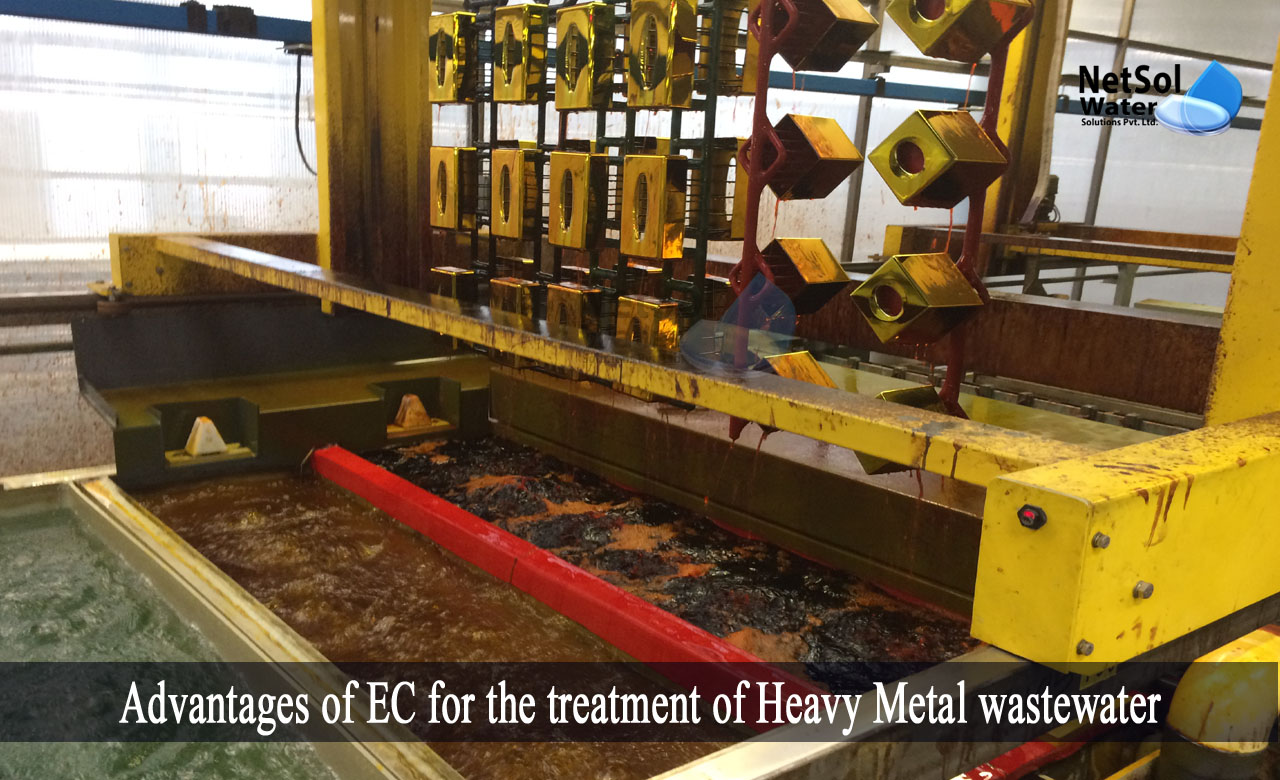What are Advantages of EC for the treatment of Heavy Metal wastewater?
Certain criteria are influenced by density, atomic number, and chemical behaviour. In the water treatment industry, we frequently worry about the more prevalent and hazardous variety. These heavy metals include copper, lead, chromium, mercury, and cadmium. Arsenic is regarded as a heavy metal as well.
Therefore, treating home and industrial wastewater for heavy metals is a critical concern, both domestically and internationally. Therefore, in this blog, we will go over the advantages of the electrocoagulation process, for the treatment of heavy metal wastewater.
Heavy metals can have negative health effects
These metals have the ability to bioaccumulate in living organisms, which means they can gradually build-up inside of living things. As a result, while a single modest dose of lead or mercury might not be harmful. These metals can accumulate in your body after receiving several doses over time, and result in sickness in the future.
Chronic cadmium exposure can harm the kidneys and create lung problems. Lead can harm the neurological system, affect reproduction, and interfere with haemoglobin formation. Additionally, mercury is connected to tremors, gingivitis, and brain damage.
Advantages of electrocoagulation for the treatment of heavy metal wastewater
Currently, there are various treatment options available for reducing and eliminating heavy metals. Electrocoagulation, however, is one of the most successful and reasonably priced techniques, in an integrated heavy metal wastewater treatment system.
So, below, we'll go over some advantages of EC for the elimination of heavy metals.
· Higher concentrations of some heavy metals can be removed
Heavy metals have been taken out of water and wastewater via ion exchange. Although efficient, it can only eliminate small amounts of impurities before the resin becomes saturated, and needs to be regenerated. This might be useful in some applications for treating wastewater, containing heavy metals.
However, it would be ineffectual for individuals with high levels of heavy metals, which is often effluent from industrial activities. However, EC can swiftly and effectively handle water with larger concentrations.
· Less sludge solids residue
The creation of large amounts of sludge solids, specifically during chemical coagulation, is a prevalent issue with a number of removal techniques. Chemical additives are added to these procedures to trigger the proper reactions, which results in a substantial amount of the sludge that is produced. The sludge must next be dewatered and safely disposed of, by a third party or subject to additional treatment.
However, other than perhaps pH-adjusting chemicals, the treatment of heavy metal wastewater utilizing specialist EC technology, does not call for chemical additions.
· Multiple metals can be removed in a single system process
Some heavy metal wastewater treatment techniques demand additional steps, to account for various elements. An example would be a system that can remove lead, cadmium, and mercury, but leaves behind chromium and copper that needs to be treated differently.
If the system is properly adjusted, EC can remove a variety of different heavy metals in a single procedure. Based on the intended use, reaction times and pH would be adjusted.
· Low cost of ownership
In some circumstances, both regeneration materials and ion exchange resins might be expensive. Whatever their initial cost was, the huge amounts of chemical additives needed for chemical coagulation might build-up over time. Last but not least, due to the more complex nature of chemical processes, there may be substantial operation and starting expenses, for the toxic waste sludge created by such procedures.
Adjustment chemicals for pH may not be used in large quantities and are reasonably priced, when using a customised EC technique. Electrode materials are readily available and reasonably priced. These electrodes have a rather lengthy lifespan based on the power provided.This cutting-edge electrochemical technology can be automated, which improves operational effectiveness and lowers lifecycle costs. It also does not require a team of highly skilled operators.
Conclusion
The technology of electrocoagulation is appropriate for the treatment of wastewater, containing heavy metals. A pioneer in cutting-edge electrochemical technology is Netsol Water, as we have used this cutting-edge treatment method to treat water, for heavy metal removal such as copper, cadmium, arsenic, chromium -6 and vanadium, for various clients.
Netsol Water is Greater Noida-based leading water & wastewater treatment plant manufacturer. We are industry's most demanding company based on client review and work quality. We are known as best commercial RO plant manufacturers, industrial RO plant manufacturer, sewage treatment plant manufacturer, Water Softener Plant Manufacturers and effluent treatment plant manufacturers. Apart from this 24x7 customer support is our USP. Call on +91-9650608473, or write us at enquiry@netsolwater.com for any support, inquiry or product-purchase related query.



